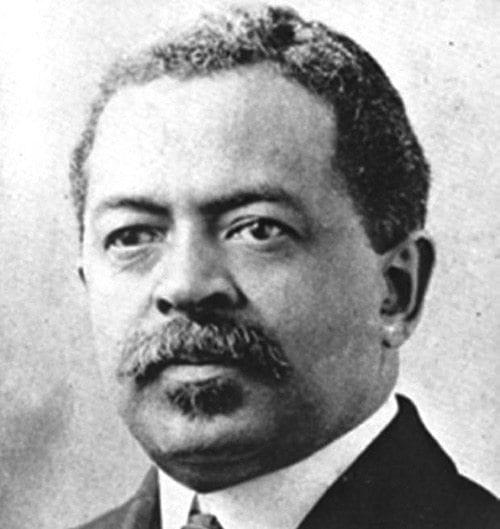An affront to Boston’s Black History
Boston Courant now the Boston Guardian


Author: Banner fileIn an undated photograph, Dr. Charles Steward stands near the entrance of The Guardian, the weekly newspaper started by his brother-in-law William Monroe Trotter. Steward and his wife, Maude, ran the paper after Trotter’s death in 1934. Maude died in 1957 and with Dr. Steward’s blessing, Melvin B. Miller started the Banner eight years later.
Newspapers still matter. In fact, the names publishers select for their newspapers are still very important. The publisher of the Boston Courant has brazenly decided to call his weekly “The Boston Guardian,” a name that is sacrosanct in Boston’s African American Community. Yet, there is no journalistic achievement of the Boston Courant to warrant the appropriation of such an historic appellation. The publisher’s decision represents a profound insensitivity both to Boston’s African American community and the history of Boston journalism.
Before television and the internet and all of the subsequent technological communication marvels, most people relied on the daily newspaper for current information. Boston was a vibrant center for journalism. A number of dailies, mostly located on Boston’s “newspaper row” in the lower Washington Street area competed for the attention of their readers.
The Boston Evening Transcript (1830-1941) was generally accepted as the paper of record for the professional and upscale citizens. The Boston Evening Traveller (1845-1967) was considered to be the paper of the working class.
The Boston Post (1831-1956) made a run at becoming a national paper and reportedly reached a circulation of one million in the 1830’s before it expired. The Boston Journal (1833-1917) ultimately merged with the Herald (1873- present) as did the Traveler.
At the turn of the century in 1900, none of the competing newspapers focused much attention on the African Americans who faced extraordinary racial oppression throughout America at that time. Even though the Black population of Boston was only 2 percent of the total then, racial discrimination was pervasive enough to warrant greater journalistic oversight.
William Monroe Trotter, a recent graduate of Harvard College, decided to launch the Boston Guardian in 1901. For the rest of his life, and until his death in 1934, Trotter became Boston’s champion of racial equality. Upon his death, Trotter’s brother-in-law, Charles Steward (Harvard ’96) continued to publish the Guardian until old age made the burden too much to carry.
Understandably, black elders in Boston hold the Boston Guardian in the highest esteem. The prospect of that name being sullied is offensive to those who have had to contend with so much for their equality over the years. The Boston Globe (1872- present) and the Boston Herald have survived Boston’s journalistic maelstrom. The Publisher of the now defunct Boston Courant can certainly select a more appropriate name from the city’s rich newspaper row history.






